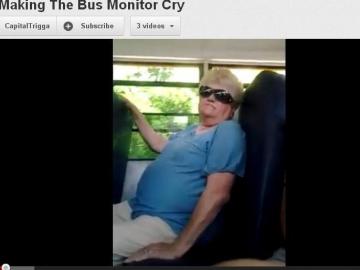
Section Branding
Header Content
Making the Bus Monitor Cry: What to do When You’re Bullied
Primary Content

What happens when educators are the victims of bullying by students? The story could enfold like Karen Klein’s. She is the 68 year old bus monitor from upstate New York who’s verbal assault by middle school students has caused outrage and an outpouring of support.
Part of the reason why she has gained attention is because the bullying was videotaped and went viral on YouTube as Making the Bus Monitor Cry. Because of that she has been the source of news reports and a man from Toronto has raised more than $500,000 on the fundraising site indiegogo.com to give her a proper vacation.
But most educators or those in the education field don’t experience this kind of “happy ending.” They deal with rude, disrespectful and violent behavior everyday.
When it reaches the level of the blatant bullying that Klein experienced, what should educators do?
Advice on Bullying
Holland Levinson, the Education Project Director from the Anti-Defamation League Southeast Region, says that educators should follow the same advice given to their students about bullying.
“I think the advice is very similar whether the target is 6 or 60,” points out Levinson. “Whether it’s physical, verbal or emotional, bullying hurts. Bullying involves an imbalance of power, and as the incident with Karen Klein demonstrates, being the adult doesn't necessarily mean you have more power in a particular situation.”
“The first thing we always want to say is that if you’ve experienced bullying, it’s not your fault. In a situation like this, when nobody steps in, the aggressors became more and more emboldened, and it becomes overwhelming for any individual. In bullying prevention, it's the actions of the majority--the bystanders--that could have made a difference. What if every child on that bus was held accountable in some way for not stepping in or saying something?”
Levinson adds, “Just as we tell kids to report an incident, the same is true for adults. Report the incident to your supervisor or trusted school administrator immediately. Document what has happened in writing if possible. If you don't get a helpful response, tell someone else. Don’t give up. Talk to a friend or colleague--perhaps the bullying is happening to others as well, and you can go as a group to report the problem. There is always power in numbers.”
School Buses Hot Zone for Bullying
“The school bus is a common "hot zone" for bullying and cruelty of all kinds. This incident demonstrates again why a comprehensive bullying prevention plan is so important for all schools. That plan needs to include strategies for the bus, the cafeteria, the gym--not just classrooms--and all staff should be included in training on bullying prevention and intervention.”
For more information and resources go to ADL's combat bullying online resource center: www.adl.org/combatbullying.
What do you think of this story and how educators should handle bullying from students? Share your thoughts and opinions.
Secondary Content
Bottom Content





